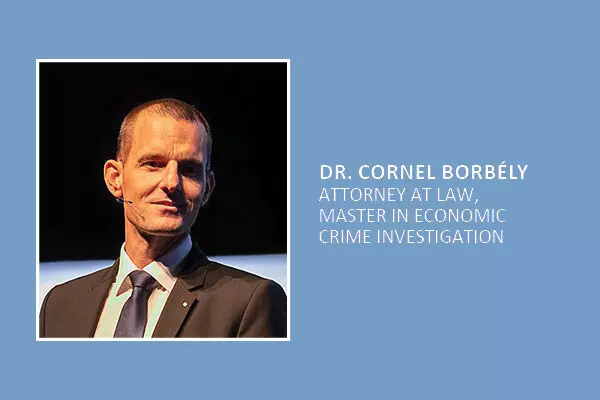- Home
- News
- Articles+
- Aerospace
- Artificial Intelligence
- Agriculture
- Alternate Dispute Resolution
- Arbitration & Mediation
- Banking and Finance
- Bankruptcy
- Book Review
- Bribery & Corruption
- Commercial Litigation
- Competition Law
- Conference Reports
- Consumer Products
- Contract
- Corporate Governance
- Corporate Law
- Covid-19
- Cryptocurrency
- Cybersecurity
- Data Protection
- Defence
- Digital Economy
- E-commerce
- Employment Law
- Energy and Natural Resources
- Entertainment and Sports Law
- Environmental Law
- Environmental, Social, and Governance
- Foreign Direct Investment
- Food and Beverage
- Gaming
- Health Care
- IBC Diaries
- In Focus
- Inclusion & Diversity
- Insurance Law
- Intellectual Property
- International Law
- IP & Tech Era
- Know the Law
- Labour Laws
- Law & Policy and Regulation
- Litigation
- Litigation Funding
- Manufacturing
- Mergers & Acquisitions
- NFTs
- Privacy
- Private Equity
- Project Finance
- Real Estate
- Risk and Compliance
- Student Corner
- Take On Board
- Tax
- Technology Media and Telecom
- Tributes
- Viewpoint
- Zoom In
- Law Firms
- In-House
- Rankings
- E-Magazine
- Legal Era TV
- Events
- Middle East
- Africa
- News
- Articles
- Aerospace
- Artificial Intelligence
- Agriculture
- Alternate Dispute Resolution
- Arbitration & Mediation
- Banking and Finance
- Bankruptcy
- Book Review
- Bribery & Corruption
- Commercial Litigation
- Competition Law
- Conference Reports
- Consumer Products
- Contract
- Corporate Governance
- Corporate Law
- Covid-19
- Cryptocurrency
- Cybersecurity
- Data Protection
- Defence
- Digital Economy
- E-commerce
- Employment Law
- Energy and Natural Resources
- Entertainment and Sports Law
- Environmental Law
- Environmental, Social, and Governance
- Foreign Direct Investment
- Food and Beverage
- Gaming
- Health Care
- IBC Diaries
- In Focus
- Inclusion & Diversity
- Insurance Law
- Intellectual Property
- International Law
- IP & Tech Era
- Know the Law
- Labour Laws
- Law & Policy and Regulation
- Litigation
- Litigation Funding
- Manufacturing
- Mergers & Acquisitions
- NFTs
- Privacy
- Private Equity
- Project Finance
- Real Estate
- Risk and Compliance
- Student Corner
- Take On Board
- Tax
- Technology Media and Telecom
- Tributes
- Viewpoint
- Zoom In
- Law Firms
- In-House
- Rankings
- E-Magazine
- Legal Era TV
- Events
- Middle East
- Africa

Switzerland: A Differentiated Approach to Fraud

Switzerland: A Differentiated Approach to Fraud Swiss law interprets the offense of fraud in a special way where in addition to the characteristics of deception and damage as known in many jurisdictions, a qualified lie, i.e. a malicious approach, is required As in many jurisdictions, fraudulent behavior is judged as a criminal offense in Switzerland. Actually, fraud is considered one...
To Read the Full Story, Subscribe to Legal Era News
Access Exclusive Legal Era Stories, Editorial Insights, and Expert Opinion.
Already a subscriber? Sign in Now
Switzerland: A Differentiated Approach to Fraud
Swiss law interprets the offense of fraud in a special way where in addition to the characteristics of deception and damage as known in many jurisdictions, a qualified lie, i.e. a malicious approach, is required
As in many jurisdictions, fraudulent behavior is judged as a criminal offense in Switzerland. Actually, fraud is considered one of the most serious allegations in the field of white-collar crime. However, the Swiss version of this crime requires special elements which are unique in comparison with international versions of it. A simple deception is generally not sufficient to fulfil the requirements of this crime.

FRAUD ACCORDING TO SWISS LAW
According to the Swiss Criminal Code, anyone who induces an erroneous belief in another person by false pretences or concealment of the truth, or reinforces an erroneous belief, can be punished for fraud. By doing so, the person in error acts to the prejudice of his or another's financial interests. From a subjective point of view, intentional behavior is required as well as a view to securing an unlawful gain for himself or another. Such a person is liable to a custodial sentence not exceeding five years or to a monetary penalty. If the offender acts for commercial gain, he is liable to a custodial sentence up to ten years.
The analysis of this crime thus shows the following objective elements:
An offender misleads a victim by deceiving the latter about facts. Statements about uncertain future events or forecasts are not subject to this crime. Such deception may also be conclusive or performed by suppressing facts. This deception causes the error; even if a victim doubts the truth of the deceiver's assertion, this does not exclude fraudulent behavior per se. Finally, the error leads to a transfer of assets with damage as a consequence. Any impairment of assets is seen as financial loss which may consist in a reduction of such assets, an increase in liabilities or in the loss of profit. A mere endangerment of assets is generally not sufficient.
THE QUALIFIED LIE IN PARTICULAR
As a peculiarity of Swiss criminal law, to fulfil fraud, the deception must be malicious. The background to this is that elementary deceptions are to be excluded from criminal liability. Those who fall for all too obvious constructions of lies should not be protected.
The Swiss Federal Supreme Court provides different variants as a prerequisite for malicious conduct:
(a) As a first possibility, a perpetrator develops an entire construct of lies. Such a construct of lies is given if these lies are particularly insidious and so cleverly coordinated that even a critical victim can be deceived.
(b) The offender uses special or deceptive machinations. Special machinations include inventions and precautions as well as the exploitation of events which, alone or supported by lies or tricks, are capable of misleading the victim. Machinations are actual stagings; they consist of a whole system of lies and thus, compared to a mere summation of lies, require higher demand for the preparation, execution and effect of the deceptive act. They are characterized by intensive, planned and systematic precautions, but not necessarily by a particular actual or intellectual complexity.
(c) Malicious intention is also given in the case of simple false statements, if it is not possible or only possible with particular effort or unreasonable to verify them, as well as if the perpetrator prevents the deceived person from carrying out the possible verification or if the circumstances indicate that the victim will refrain from verifying the statements due to a special relationship of trust with the perpetrator.
THE JOINT RESPONSIBILITY OF THE INJURED PARTY
However, the Federal Supreme Court does not unconditionally suppose malicious intent, but only if a victim himself pays a basic level of attention. In any case, malicious intent is out of question if both the picture drawn by the perpetrator as a whole and the false statements alone could have been reasonably verified and the revealing of a single lie would have led to the disclosure of the entire fraud. The required standard of attention cannot be determined in a purely objective manner, it also depends on the personal circumstances of the deceived person.
It depends on the situation and the need for protection of the person concerned in the individual case. In particular, consideration must be given to mentally weak, inexperienced victims or victims who are impaired due to age or illness, or to victims who are in a state of dependence, subordination or distress and are therefore hardly in a position to distrust the perpetrator. The carelessness or the naïvety of the victim may make it easier for the perpetrator to commit the crime, but on the other hand, the perpetrator is particularly reprehensible here because he is abusing the trust placed in him. Otherwise, any special expertise and business experience of the victim must be taken into account.
CONCLUSION
Swiss law interprets the offense of fraud in a special way. In addition to the characteristics of deception and damage as known in many jurisdictions, a qualified lie, i.e. a malicious approach, is required. This prevents all too simple deceptions from becoming criminally relevant and thus any behavior must be dealt with by the criminal authorities. Even if such malice exists, however, it is pertinent whether the victim actually acted with sufficient attention, as otherwise a criminal liability will again be excluded. The Swiss interpretation of fraud can thus be described as particularly balanced and differentiated. Primary responsibility should lie with the citizen and the state should only intervene in a subsidiary way.
Disclaimer – The views expressed in this article are the personal views of the author and are purely informative in nature.


